Glamping (a portmanteau of “glamorous” and “camping”) is a global trend gaining popularity nowadays. Offering amenities and resort-style services not usually associated with traditional camping, yet retaining its original escapism and adventurous spirit, this type of sustainable tourism has become particularly sought after in the wake of the global pandemic. Architects and designers have taken care of combining luxuries of hotel accommodation with the feeling of full immersion in Nature.
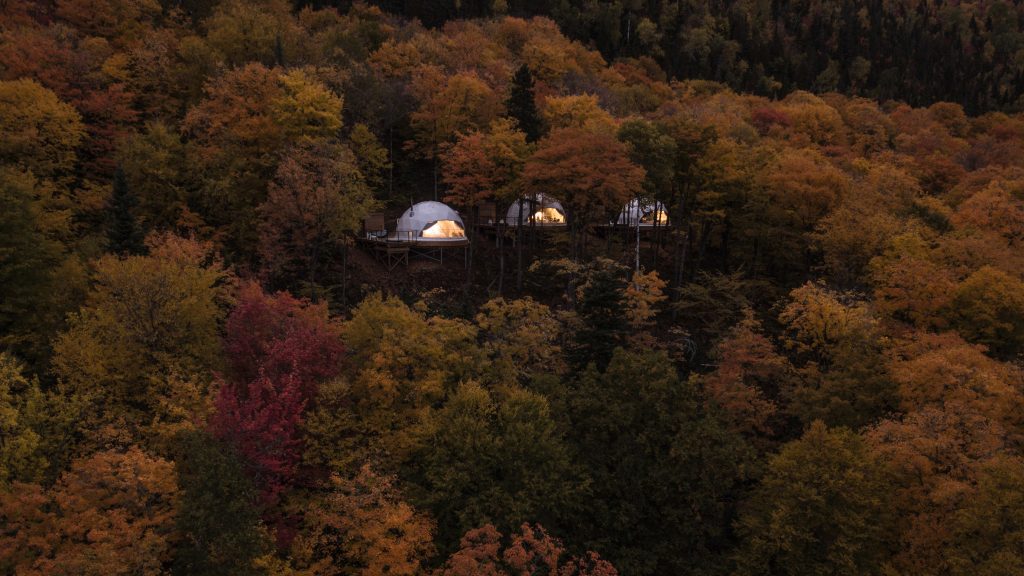
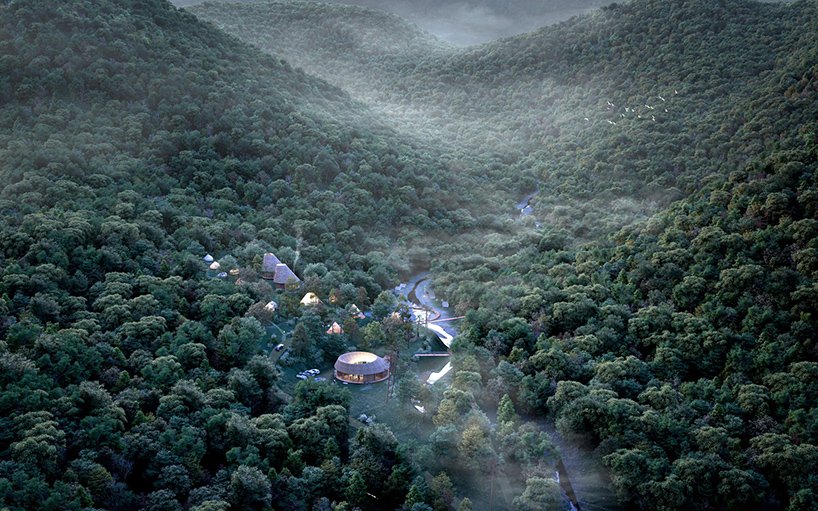
Hygge Circles by Third Nature
Danish studio Third Nature has unveiled the winning proposal for a design-minded campground on the outskirts of one of Japan’s most populated areas. Named Hygge Circles, the design sees the shape as it conceptual core. The circle stands as a universal shape that symbolizes equality, openness and democracy, and this concept is rooted in the old times when early civilizations were founded in circular gatherings.
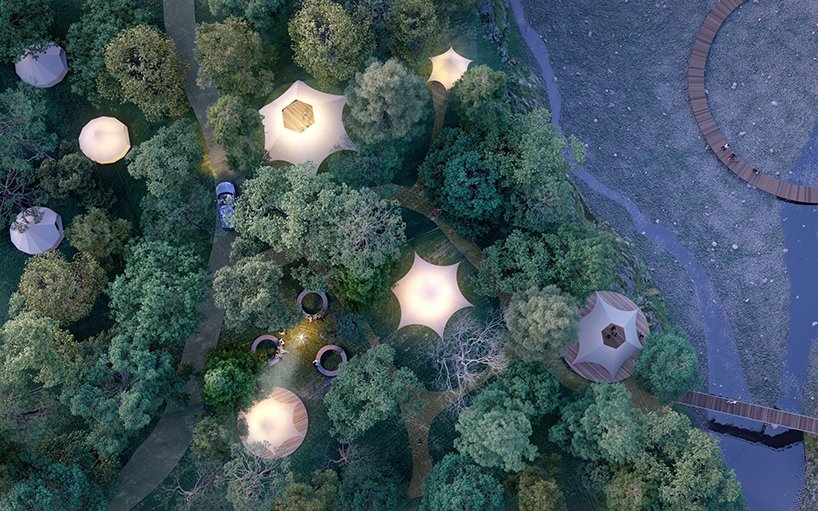
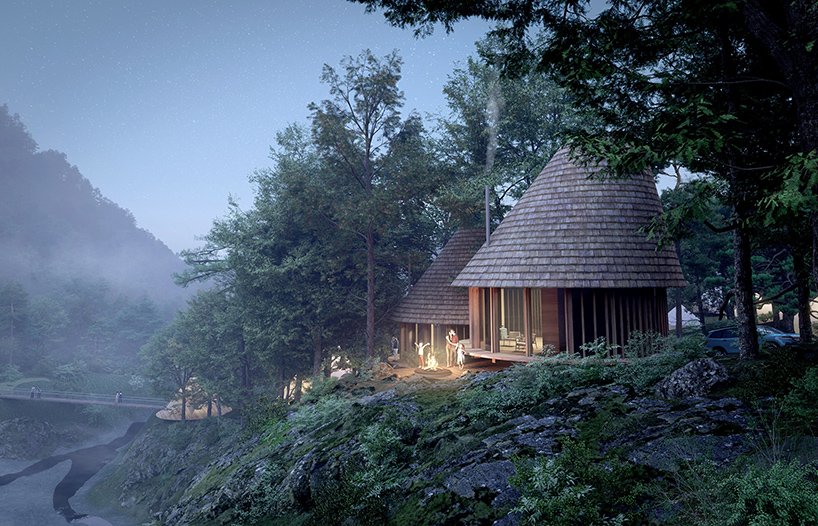
Hygge Circles by Third Nature
The campground consists of three zones: an overnight area scattered with circular cabins and glamping tents, an area where visitors can erect their own tents, and a centralized activity area. A larger building in the middle of the site will house the reception, shop and a welcoming space for new guests.
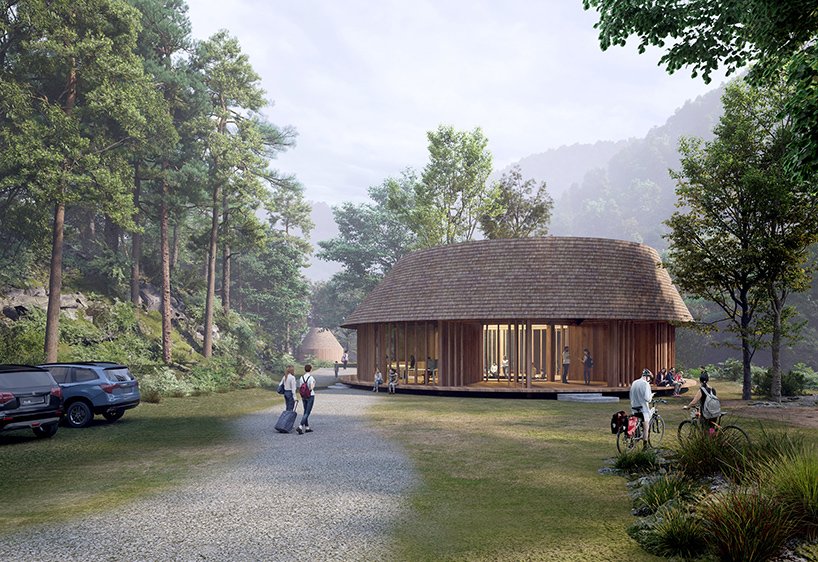
Hygge Circles by Third Nature
The Hygge Circles will be constructed using only renewable materials and repurposed building waste and is set to open in the spring of 2021.
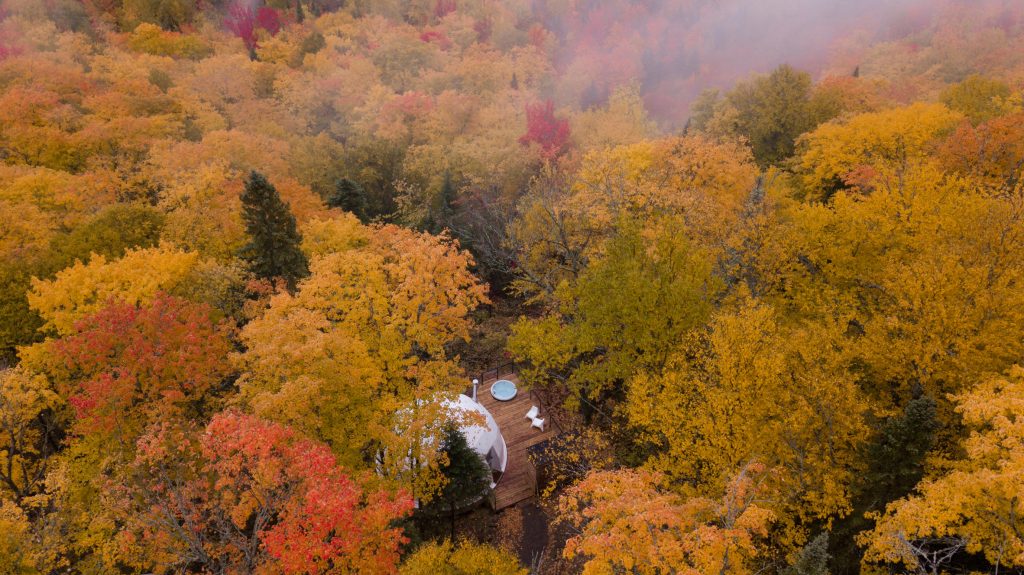
Domes Charlevoix by Bourgeois Lechasseur (also header image)
Local firm Bourgeois/Lechasseur Architects has designed Dômes Charlevoix, a luxury sustainable tourist resort in a hillside forest in Quebec, Canada. The project comprises a trio of grey glamping domes cantilevered from the hill and elevated to sit just underneath the tree canopy. Each dome blends in harmoniously with the landscape thanks to the wooden platforms and a pale grey PVC canvas that match the hues of the surroundings. Outside, the platforms extend to form decks where guests can dine or bathe in hot tubs.
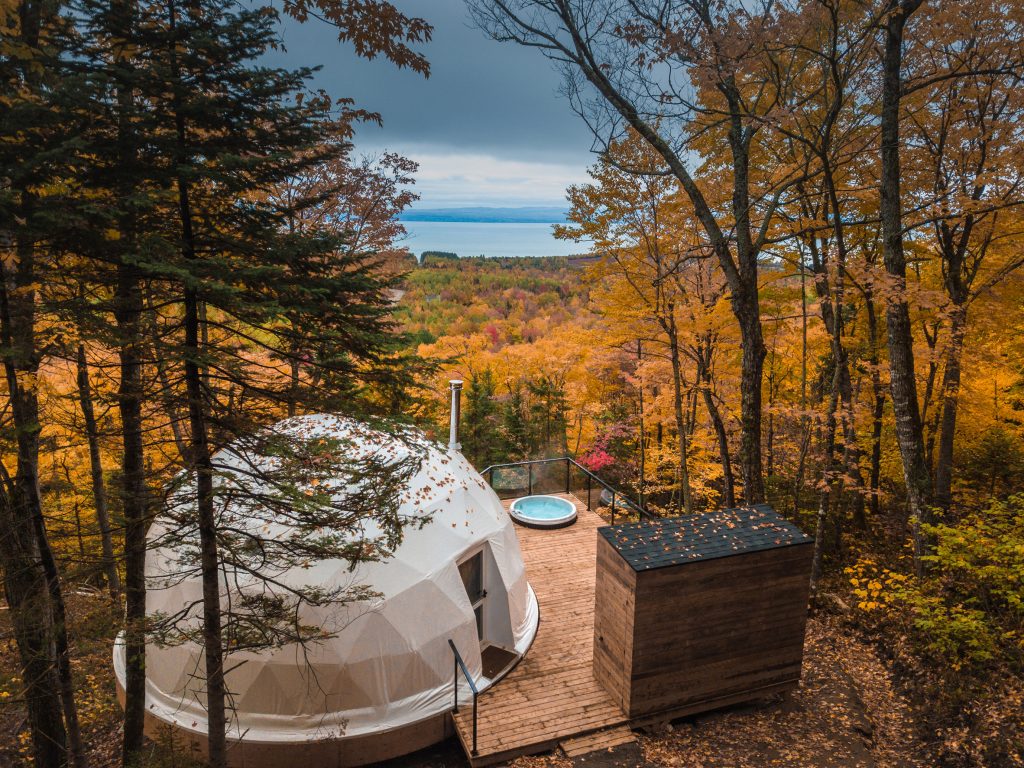
Domes Charlevoix by Bourgeois Lechasseur
Consisting of triangular modules, the geodesic structures are extremely strong, yet use little material and remain lightweight. Their tent-like material peels back to create large windows for natural ventilation and amazing views down the mountainside. Radiant heating in the concrete floors and wood-burning stoves, as well as extra insulation, enable the domes to be used all year round, even in northern Quebec’s cold winters.
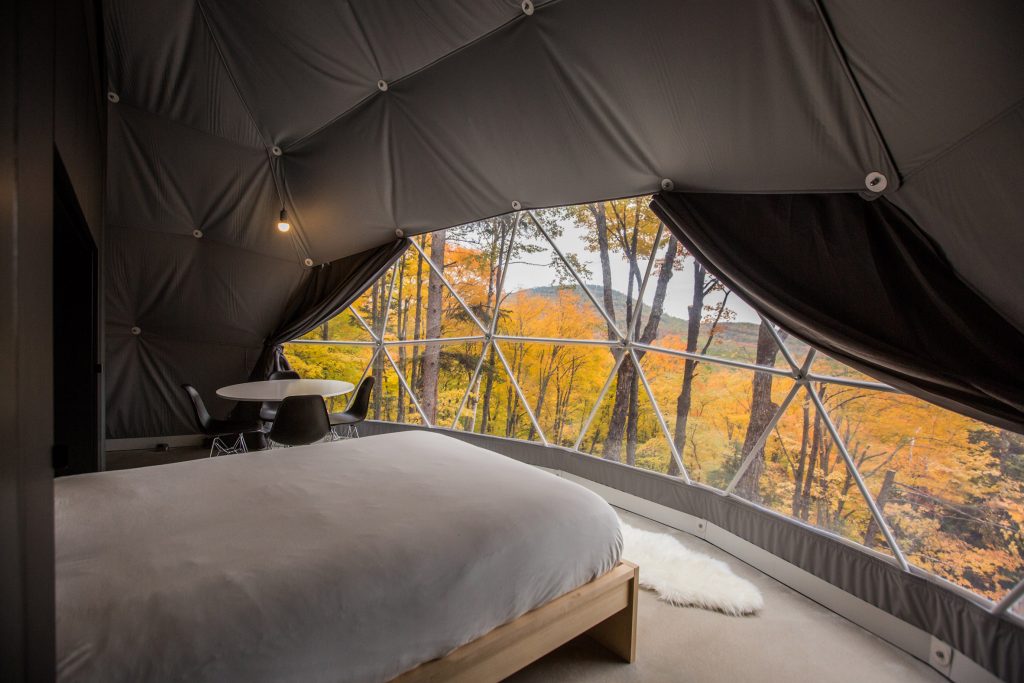
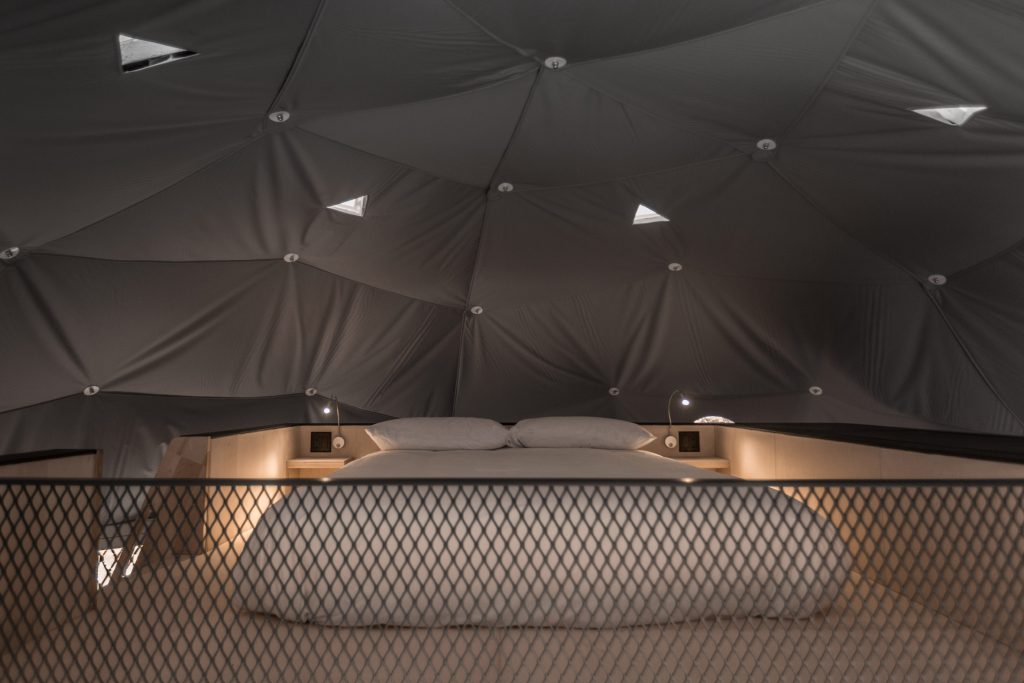
Domes Charlevoix by Bourgeois Lechasseur
Each cabin can accommodate up to four people, it includes a master bedroom on the lower level, mezzanine level for extra beds, a bathroom, and a small kitchenette.
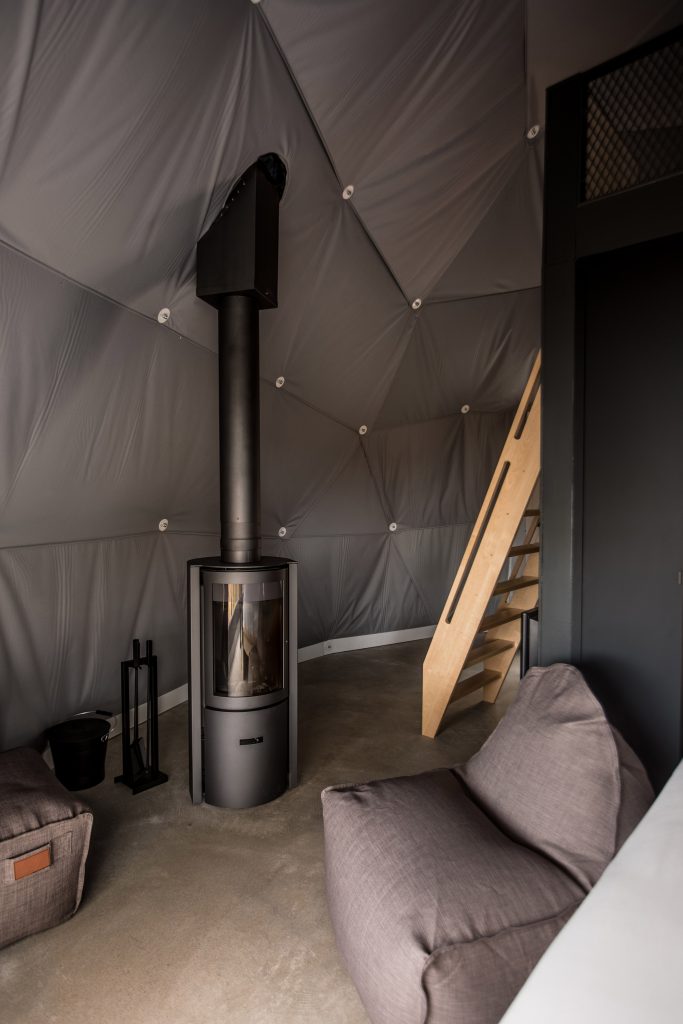
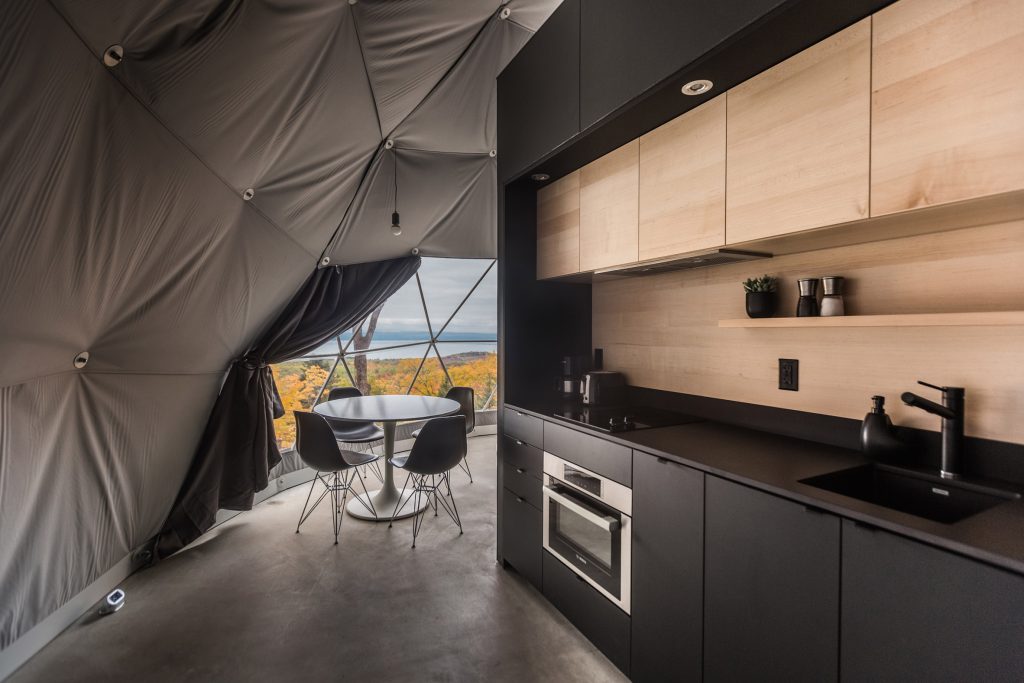
Domes Charlevoix by Bourgeois Lechasseur
The three cabins are designed to make as little impact on the natural surroundings as possible. The minimal foortprint allowed to conserve a lot of trees, while the structures themselves were prefabricated and installed onsite.
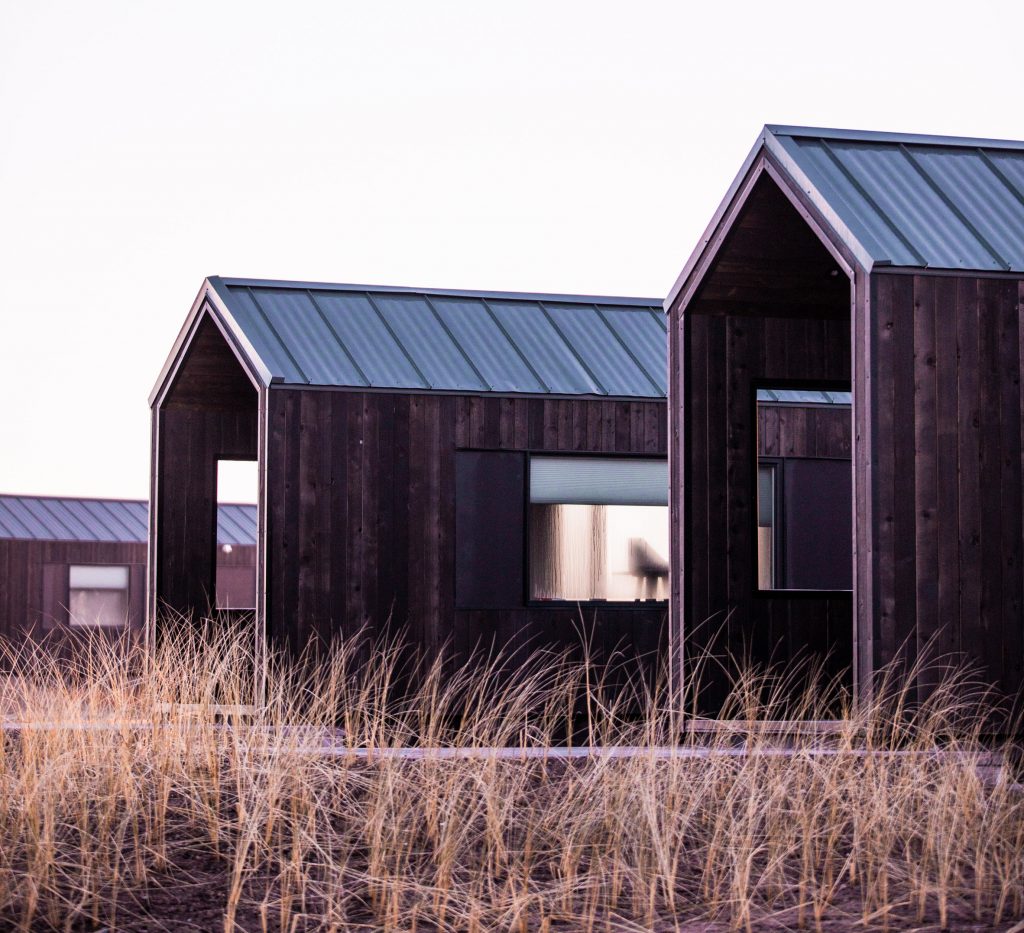
Bay Point Landing by Office Untitled (ph: Caleb Gaskins)
Californian studio OfficeUntitled has developed a project for a glamping site Bay Point Landing in Oregon, USA. The luxury campground, surrounded by sandy beaches and a dense forest, was built comfortable accommodations, while preserving the bay’s natural beauty. It currently offers 17 furnished cabins and nearly 100 spots for drive-in caravans.
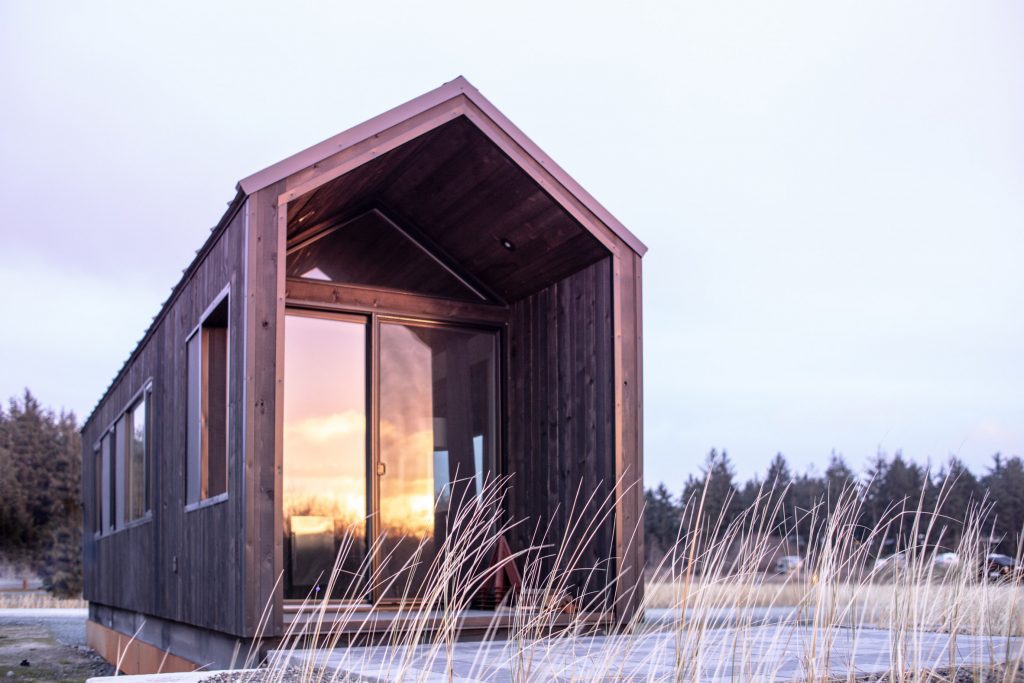
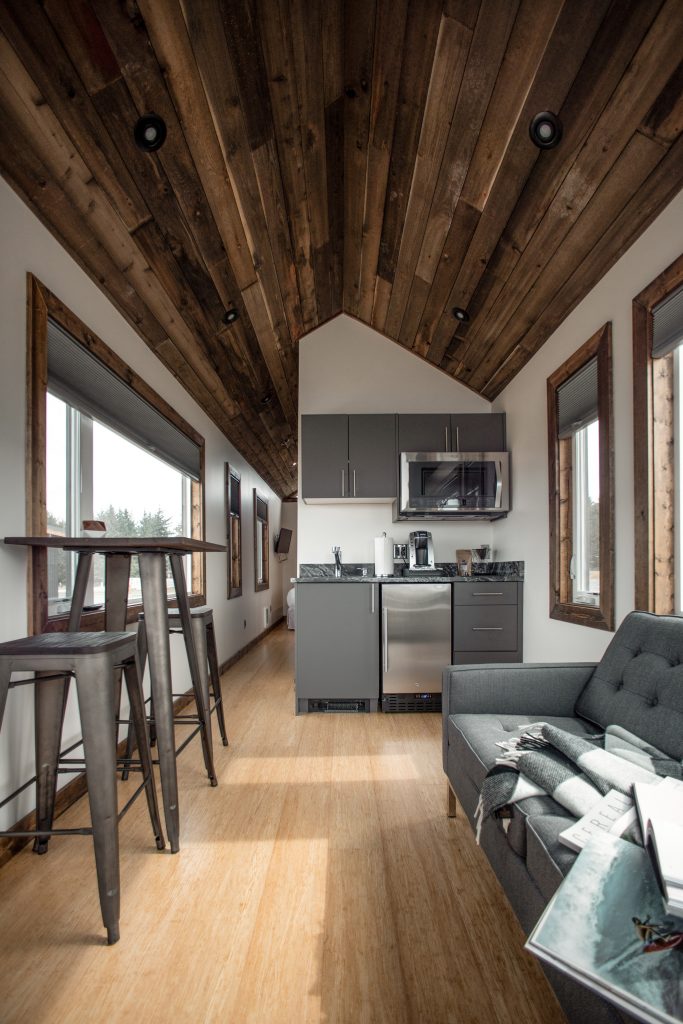
Bay Point Landing by Office Untitled (ph: Caleb Gaskins)
The architects created two different cabins for the property, both clad in distressed timber – the Kamp Haus Cabin with a gabled roof and the flat-topped Drift Cabin. Each dwelling contains an open living room featuring a kitchenette, a bedroom, a bathroom, and a sheltered porch outside, equipped with a picnic table and a fire pit for the guests to have an opportunity to dine out.
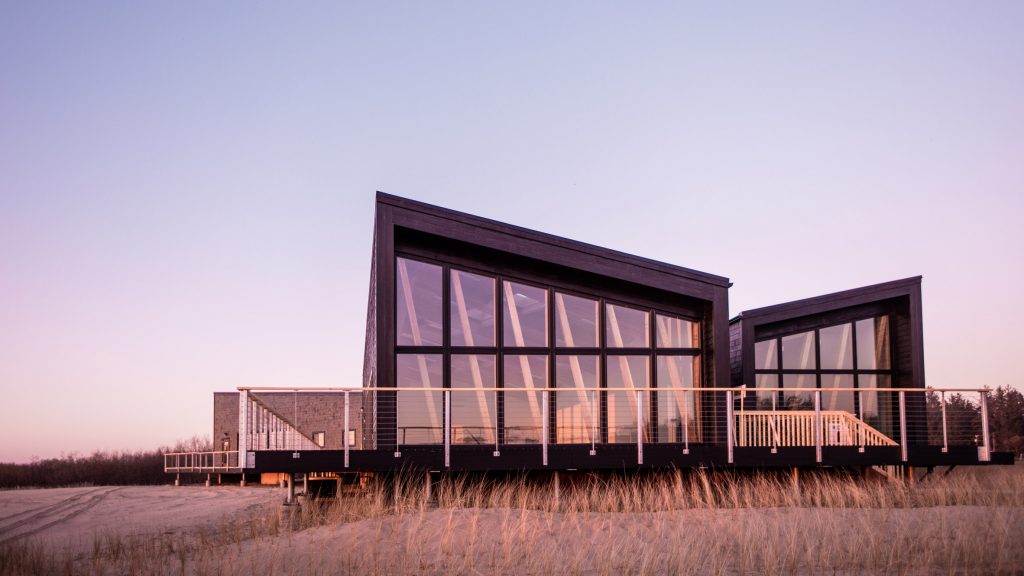
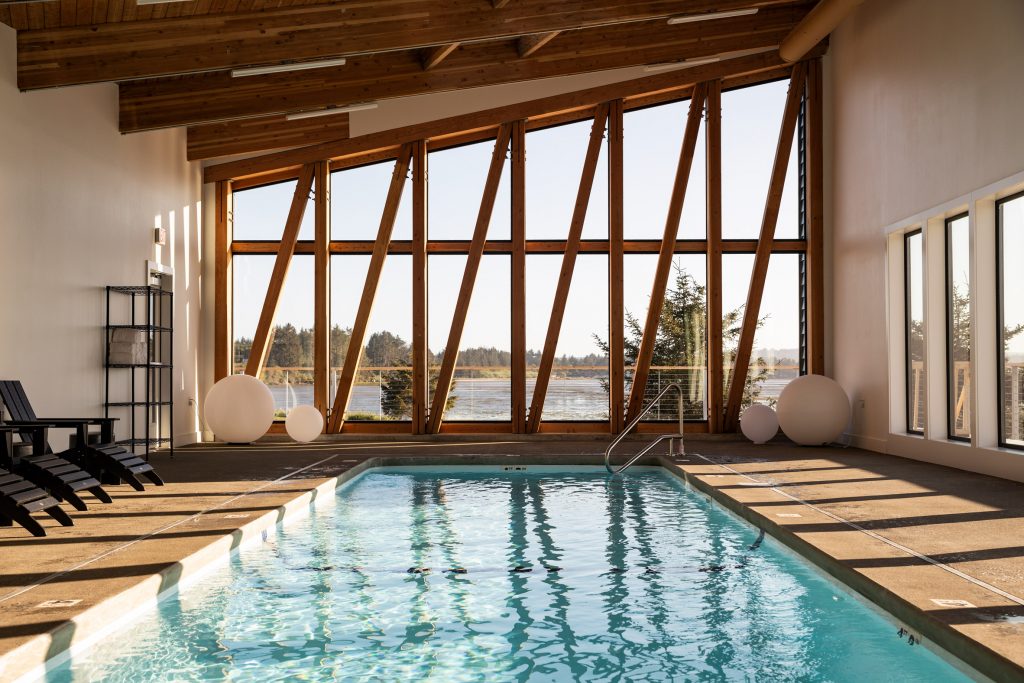
Bay Point Landing by Office Untitled (ph: Caleb Gaskins)
At the heart of the property, between the campsites and the waterfront, there us a spacious year-round clubhouse that is elevated above the grounds via a series of piers. Roughly V-shaped in plan, the building consists of four volumes, each with different functions, including a saltwater swimming pool, a gym, an event space, a bar, a lounge, laundry facilities and a welcome lobby.
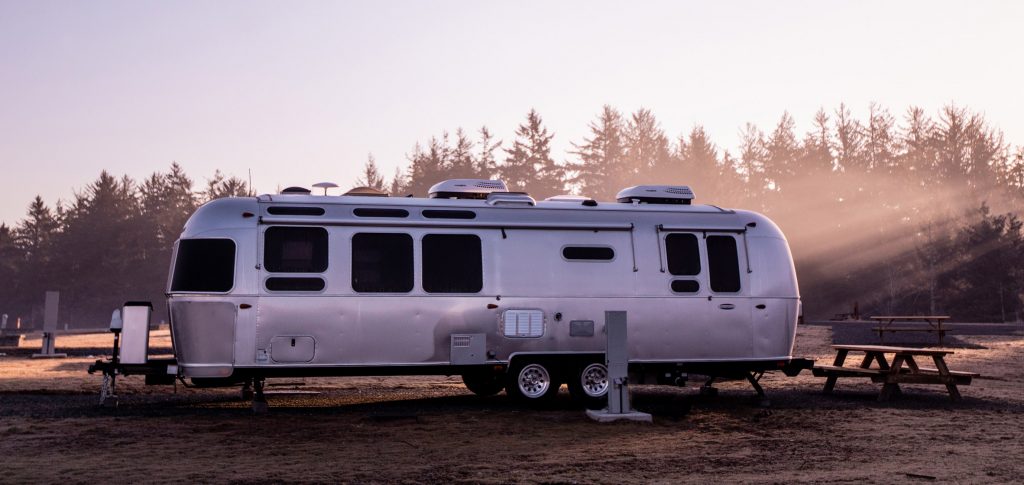
Bay Point Landing by Office Untitled (ph: Caleb Gaskins)
Cedar shingles and glass glazing form the exterior walls, the cabin’s angled roofs paying homage to the region’s traditional seaside huts. The roofs slope in different directions, giving the clubhouse a more sculptural look.